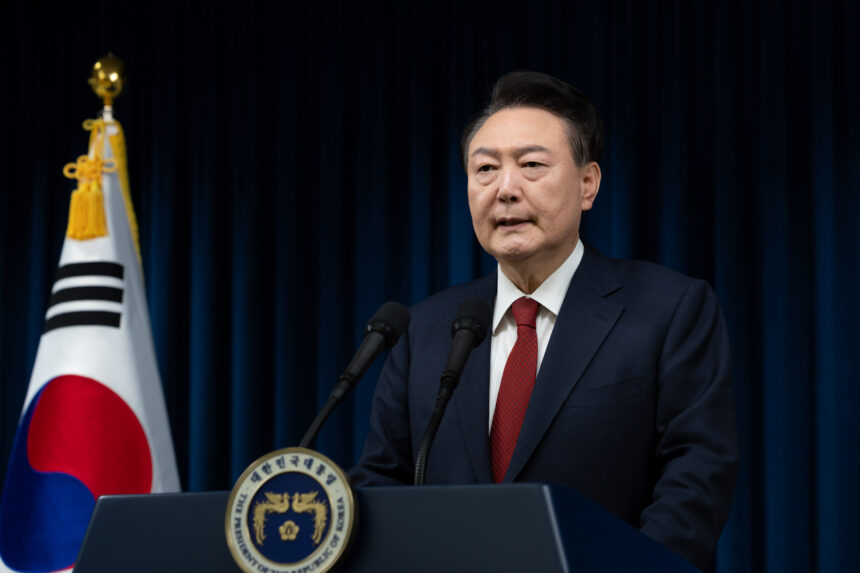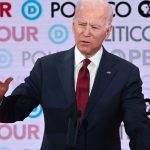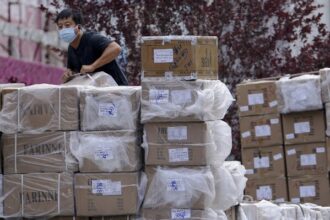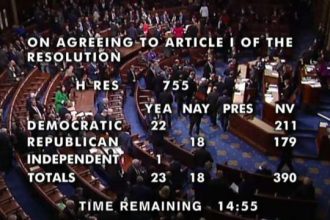South Korean authorities have arrested impeached President Yoon Suk Yeol on charges of insurrection, and he is to undergo questioning. This is unprecedented and follows his controversial declaration of martial law on December 3, which plunged one of the most vibrant democracies in Asia into chaos.
Yoon’s arrest marks the first time in South Korean history that an incumbent president has been detained. His motorcade, flanked by a small army of personal security, left his hillside residence early on January 15 as investigators from the anti-corruption agency moved in.
Yoon Suk Yeol’s presidency has been anything but smooth sailing since he was elected in 2022. His tenure has been stained with controversy and scandal. Yoon’s declaration of martial law on December 3, 2024, citing threats from “North Korean communist forces” and “anti-state elements,” was the final straw for many. The declaration led to his impeachment on December 14, 2024, and his subsequent suspension from office.
On January 15, 2025, South Korean authorities finally succeeded in arresting Yoon after weeks of tense standoffs and failed attempts. Over 3,000 police officers and anti-corruption investigators converged on Yoon’s residence, forcing their way through crowds of supporters and ruling party members. The arrest warrant, issued by the Corruption Investigation Office for High-Ranking Officials, marks the first time a sitting South Korean president has been detained.
Yoon said in a statement, and I quote: “When I saw them break into the security area using firefighting equipment today, I decided to respond to the CIO’s investigation—despite it being an illegal investigation—to prevent unsavory bloodshed.” Yoon’s lawyers argue that the arrest warrant is designed to publicly humiliate him.
Yoon’s arrest has further polarized an already divided nation. President Yoon’s supporters characterized the arrest as a political witch hunt, while opponents applauded the move as a necessary step to uphold the rule of law. There was tension over the detention of Yoon, with minor clashes between pro-Yoon demonstrators and police.
Under South Korean law, once Yoon arrives at the anti-corruption agency’s offices, authorities have 48 hours to question him, after which they must seek a warrant to detain him for up to 20 days or release him.
While the world watches this political spectacle unfold, one cannot help but wonder: Could be the end of Yoon’s political career? What is next in store for South Korea’s authorities? Join the conservation in the comments below, and don’t forget to like, share, and subscribe for more updates.














